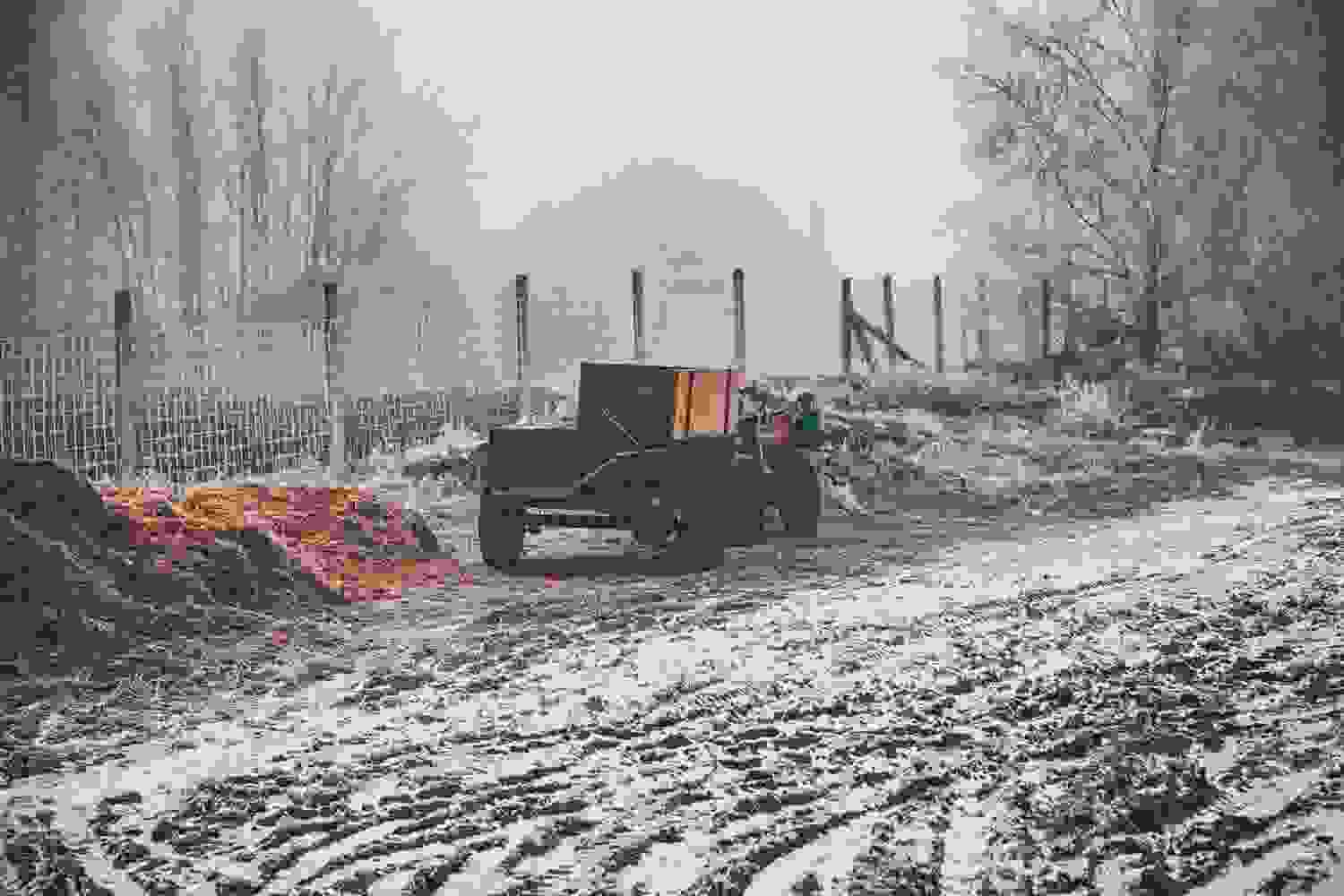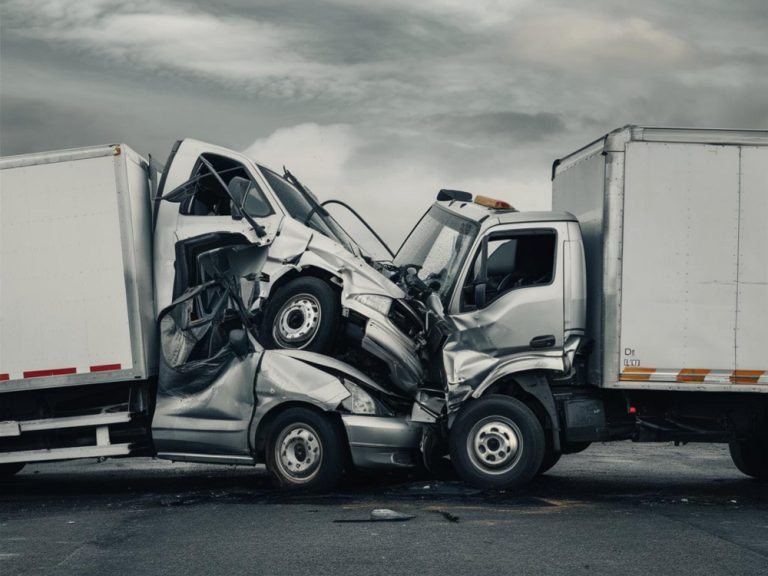If you’ve ever driven on an Illinois highway in the middle of winter, you know how unpredictable the weather can be. One moment the road is clear, and the next, visibility drops to near zero as snow, sleet, or freezing rain sweeps through. For truck drivers operating massive 18-wheelers that weigh up to 80,000 pounds, these sudden weather changes can turn an ordinary drive into a deadly situation.
1. Winter Weather: Ice, Snow, and Black Ice
Winter is one of the most dangerous times for trucking in Illinois. From late November through March, temperatures often drop below freezing, creating treacherous driving conditions.
- Icy or snow-packed roads that reduce traction and braking ability.
- Black ice, which is nearly invisible and causes trucks to lose control without warning.
- Snow drifts and slush, which can obscure lane markings and hide potholes.
- Freezing rain, which coats windshields, mirrors, and sensors.
Truckers are trained to handle winter weather, but not all follow best practices. Many continue to drive at unsafe speeds or fail to adjust for conditions, despite federal safety guidelines requiring them to “reduce speed and exercise extreme caution” during hazardous weather. If a trucking company pressures a driver to stay on schedule during a snowstorm, that’s negligence. Safety should always come before delivery deadlines.
2. Heavy Rain and Flooded Roads
Illinois sees frequent heavy rainfall, especially in spring and summer. While rain might seem less dangerous than snow, it can be equally deadly for truck drivers. Hydroplaning, when tires lose contact with the road surface, can cause an 18-wheeler to jackknife or roll over in seconds.
Additionally, heavy rain reduces visibility, affects braking performance, and increases stopping distances. Truck drivers are required to:
- Use headlights and wipers during rain.
- Slow down significantly in wet conditions.
- Avoid sudden lane changes and sharp turns.
If they fail to do so and cause a crash, the trucking company can be held responsible for unsafe driving practices.
3. Fog, Poor Visibility, and Low-Light Conditions
Fog is one of the most underestimated dangers on Illinois roads, particularly along rural highways and open plains. It can reduce visibility to just a few feet, making it nearly impossible for drivers to see brake lights or lane dividers.
Truckers should be trained to:
- Use low-beam headlights and fog lights (never high beams).
- Maintain a safe following distance.
- Pull over if visibility becomes too poor.
Sadly, not all do. Some continue driving at unsafe speeds, assuming their experience will keep them safe, but overconfidence in fog is one of the most common causes of multi-vehicle pileups.
4. High Winds and Tornado Conditions
Illinois is no stranger to strong winds and tornado warnings, especially in spring and early summer. High crosswinds can push large trucks out of their lanes or even cause them to tip over, particularly when they’re lightly loaded.
Empty trailers act like sails in the wind, and when truckers ignore wind advisories or fail to slow down, the results can be catastrophic. Wind-related rollovers are common on open highways such as I-55, I-57, and I-80, where there’s little protection from gusts.
In these cases, both driver judgment and company policies are key. Trucking companies should monitor weather alerts and instruct drivers to pull over when winds exceed safe limits.
5. Extreme Heat and Road Deterioration
While winter gets most of the attention, summer also brings hazards for Illinois truckers. High temperatures can cause tire blowouts, engine overheating, and even road surface buckling.
Overloaded or poorly maintained trucks are especially vulnerable. A blown tire on a semi-truck traveling at highway speed can cause the driver to lose control, leading to chain-reaction crashes that injure multiple people.
Regular inspections, tire pressure checks, and proper load balancing are all critical during hot-weather months. Failing to perform them isn’t just negligent, it’s dangerous.

6. Seasonal Maintenance and Visibility Issues
Each season affects visibility differently:
- Spring: Glare from rain and fog buildup on mirrors.
- Summer: Sun glare during sunrise and sunset hours.
- Fall: Early darkness and wet leaves that make roads slippery.
- Winter: Snow glare and ice-covered mirrors or sensors.
Truckers are responsible for ensuring their vehicles are equipped for each season, functioning wipers, clear lights, defrosters, and tire treads appropriate for the weather. If a trucking company fails to maintain its fleet seasonally, it can be held liable for putting unsafe vehicles on the road.
7. When Weather Isn’t the Only Problem — Human Error Makes It Worse
Bad weather doesn’t cause accidents on its own, driver decisions do. Many crashes happen because truckers:
- Drive too fast for conditions
- Fail to increase following distance
- Ignore weather advisories
- Skip rest breaks to stay on schedule
- Fail to check brakes or tires before departure
In other words, weather may set the stage, but negligence causes the crash. That’s why having a skilled Illinois truck accident attorney is crucial — they know how to investigate not just what happened, but why it happened.
When Weather Turns Dangerous, Responsibility Matters Even More
Illinois weather is unpredictable, but that doesn’t mean truck accidents are unavoidable. Professional drivers and trucking companies have a legal and moral duty to prepare for seasonal hazards, adjust their driving, and prioritize safety over profit. When they don’t, innocent people pay the price.
If you or a loved one has been injured in a weather-related truck accident, know this, you’re not powerless. With the right legal team, you can uncover what went wrong, hold negligent parties accountable, and secure the compensation you need to rebuild your life.
At our firm, we’ve helped victims across Illinois find justice after devastating weather-related crashes, from icy highways to rain-soaked interstates. We understand how weather affects trucking, and we know how to prove when drivers and companies fail to adapt to it.
Because at the end of the day, safety isn’t about the weather, it’s about responsibility
Related Resources




